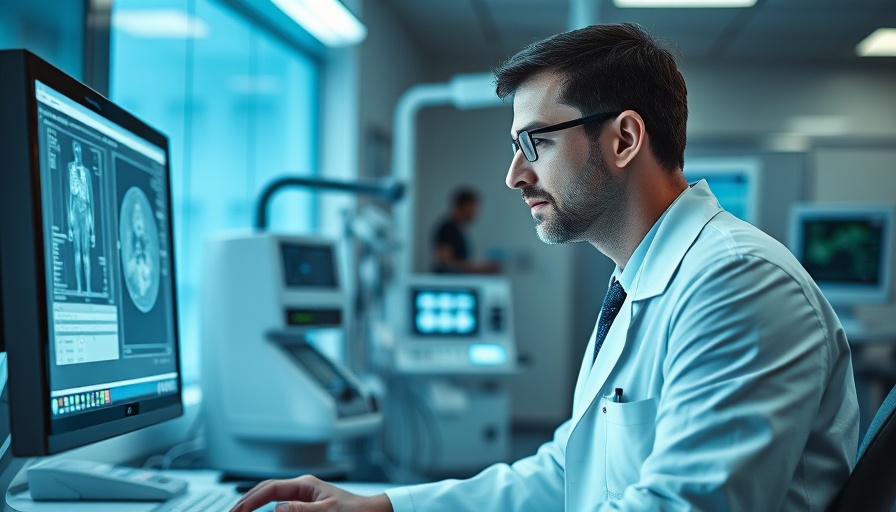
The AI Revolution in Healthcare: Blessing or Curse?
As artificial intelligence (AI) tools continue to make inroads into the medical field, a mounting concern has emerged: Are these innovations actually undermining the skill set of healthcare professionals? While AI has undoubtedly revolutionized diagnostics and increased efficiency, some experts argue it could be deskilling doctors and eroding their ability to make informed decisions. This article delves into the implications of relying heavily on AI in healthcare, drawing insights from various studies and expert opinions.
Historical Context: AI and Medicine
The marriage of AI and healthcare dates back several decades, but the pace of innovation has accelerated dramatically in the past few years. Initially, AI's role was limited to data analysis, assisting doctors in understanding complex patient data. However, recent advancements have positioned AI as a decision-maker, suggesting treatment plans and diagnosing conditions with increasing accuracy. While this has improved efficiency, it's essential to consider the potential downsides—particularly, the dependency on technology that may leave healthcare professionals less equipped to handle a wide range of scenarios.
Understanding Deskilling: Is AI Making Doctors Dependent?
Deskilling refers to the diminishing of a professional's skills due to a reliance on technology. In healthcare, this can manifest in various ways—from reduced diagnostic acumen to diminished patient interaction skills. A study conducted by researchers at the Institute for Healthcare Innovation indicated that over-reliance on AI tools has led many doctors to trust algorithms rather than their own judgment. One junior doctor noted, "I find myself double-checking my decisions against what the AI suggests, sometimes forgetting the clinical knowledge I had before. It’s as if I’m losing touch with the basics."
The Balance Between Technology and Human Touch
Successful healthcare relies on the delicate interplay between cutting-edge technology and the irreplaceable human touch. While AI can process data faster and potentially more accurately, it lacks the emotional intelligence and empathy essential for patient care. Many healthcare providers advocate for a balanced approach, using AI as a supportive tool rather than a definitive authority. This perspective is echoed in studies that suggest that doctors who leverage AI to enhance their skills—rather than replace them—report higher satisfaction in their roles and better patient outcomes.
Future Predictions: Will AI Empower or Undermine Doctors?
As AI continues to evolve, its impact on the medical profession will likely intensify. Experts warn that without deliberate efforts to maintain physicians’ core competencies, the risk of deskilling could grow significantly. On the other hand, the integration of AI could prompt a revitalization of medical education, with a newfound emphasis on blending technological literacy with traditional healthcare education. In the coming years, we may witness a transformation where doctors are viewed not only as providers of care but also as adept navigators of complex AI systems.
Addressing Counterarguments: The Value of AI
Despite concerns over deskilling, proponents argue that AI can help physicians make better-informed decisions by sifting through vast amounts of data quickly. This allows for precision medicine tailored to individual patients, potentially leading to improved health outcomes. The argument is that AI should complement, not replace, human intuition and experience. Instead of viewing AI as a competitor, embracing it as a colleague might unlock new levels of patient care and operational efficiency.
Tools for Tomorrow: Practical Tips for Doctors
For healthcare professionals navigating this brave new world, it’s crucial to strike the right balance between technology and personal expertise. Here are some practical tips:
- Engage in Continuous Learning: Regular training sessions on AI tools can enhance a doctor’s tech fluency, ensuring they remain informed about advancements and limitations.
- Maintain Clinical Skills: Doctors should prioritize hands-on experiences and clinical practice to preserve their diagnostic skills, even as they embrace new technologies.
- Foster Patient Interaction: Equipping oneself with excellent communication skills can help mitigate the risk of losing the human touch in patient care.
Emotional Perspectives: The Stress of Change
The integration of AI tools can evoke varying emotions among healthcare providers. On one hand, there is excitement over the efficiencies these technologies bring, but on the other, there is anxiety about the loss of traditional skills. As doctors face the challenge of adapting to technological change, fostering an environment of support and training can ease the transition and build confidence in their capabilities.
Common Misconceptions: AI in the Wrong Hands
A common misconception is that AI could entirely replace human doctors, eliminating the need for physical examinations or professional insights. This view overlooks the foundational role that human judgment plays in patient care. While AI can assist in diagnosis, the ultimate responsibility lies with the physician who must consider all aspects of a patient's health to deliver personalized care. Education and training can help dispel these myths and emphasize the importance of a symbiotic relationship between AI and healthcare professionals.
In conclusion, while AI tools have transformed healthcare, professionals must remain vigilant to the potential risks of deskilling. Embracing technology with a mindset focused on collaborative enhancement rather than competition can lead to a brighter future for both doctors and patients. As we stand on the brink of further healthcare advancements, let’s ensure that the artistry of medicine, alongside the precision of AI, creates a holistic approach to health care.
 Add Row
Add Row  Add
Add 




Write A Comment